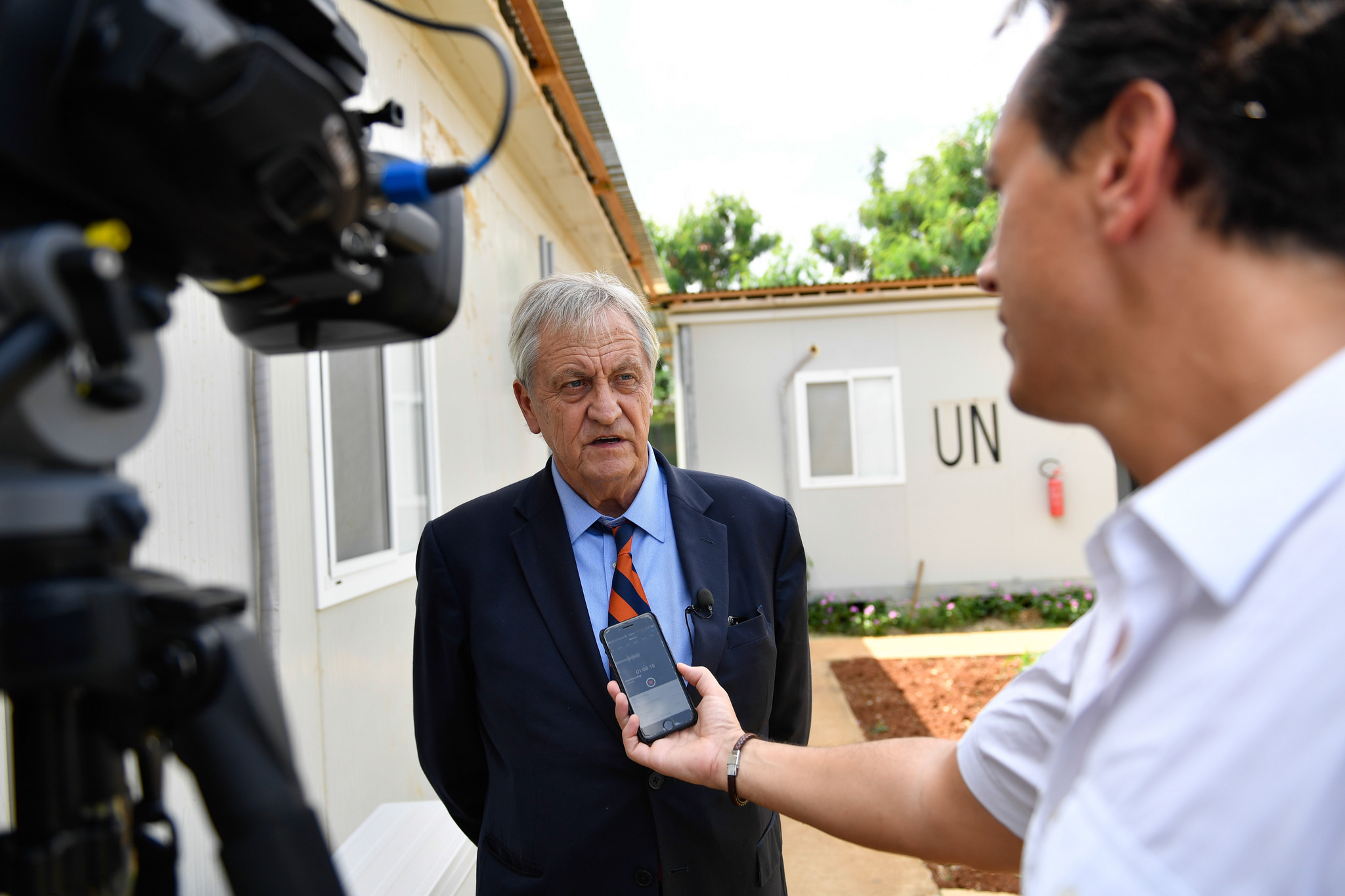Somali federalism project on the ‘cliff-edge’, UN envoy warns

The ongoing political disputes and the move by federal member states to form their own armies could unravel the federalism project in Somalia and throw off course the African Union forces exit plan from the Horn of Africa country, the UN has warned.
In his inaugural address to the AU Peace and Security Council Wednesday, UN head in Somalia Nicholas Haysom warned the deteriorating relationship between the Federal Government and the Federal Member States (FMS) had stalled progress in the country and risked further instability.
“The Federal Member State leaders have decided to suspend cooperation with the Federal Government, to form their own joint security forces and have walked away from previous plans and structures agreed with the Federal Government. These decisions, if implemented, would deal a blow to the Somali federal project,” Haysom told the Council.
And as Haysom addressed the Council, the first FMS Inter-State Security Council meeting opened in Kismayu affirming the decision of the FMS leaders late October in Garowe to form their own defense units halting dependence on the FGS.
The Security Council, the leaders said would act ‘as a mechanism responsible for the development and implementation of all security related matters in the territories of participating FMS’.
2020 Elections
Addressing the AU Peace and Security Council after a whirlwind tour of the FMS and Somaliland in the past week, Haysom added the inter-governmental row also puts into question the realization of the ambitious universal vote slated for 2020. “If this becomes a protracted crisis, Somalia would not be able to meet the timelines for the transition process and the 2020 elections.”
The 2020 elections is anchored on cooperative efforts between the two levels of government on critical areas such completion of the constitutional review process, security, voter registration and passage of key legislative frameworks.
Critical is security which the UN envoy warned could be adversely affected by the ongoing stalemate. The Transitional Plan which is largely dependent on the actualization of the National Security Architecture contemplates an integration process of security forces at FMS to form the National Army and the Police Force. But the move by the FMS leaders to go their own way could stall that Plan.
“We are concerned that the current impasse between different levels of government could adversely affect the implementation of the Transition Plan and the National Security Architecture,” Haysom said. “This in turn would affect AMISOM reconfiguration and operations.”
Amisom, Haysom added ‘not only needs predictable fundin and a clear horizon for drawdown but also needs the Federal Government and the Federal Member States to work together.’
The UN envoy noted the stalemate could be broken through a three pronged approach; firstly technical cooperation; secondly through the mediation of the Upper House – involving joint ministerial committees, and finally direct dialogue offered by President Farmajo.
Relations between the FMS and FGS went a notch higher this week with the upcoming presidential elections in South West state taking centre stage. More than half of the 27 member presidential election committee resigned Sunday accusing the federal government of interference, a similar charge raised by the FMS and the elders.
The elders announced Tuesday they were invoking powers bestowed upon them by the State Constitution to postpone the exercise but shortly after the Federal Government maintained the exercise must go on.